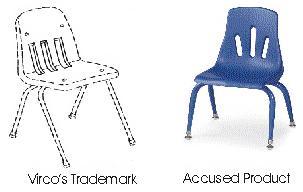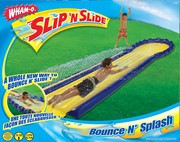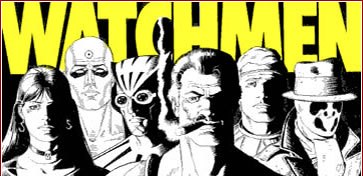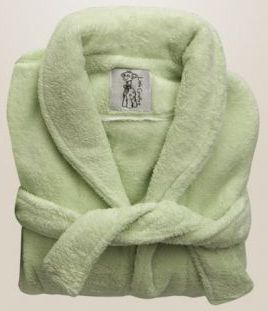Los Angeles, CA – Santa Monica copyright attorney files a copyright infringement, contributory copyright infringement, and vicarious copyright infringement lawsuit on behalf of musician Christopher Swann against Anna Kournikova for using his music on her entertainment DVD titled “A Date With Anna.” Swann alleges that in 1999 he wrote, produced and recorded a full-length music album and in February of 2003 the United States Copyright Office issued a copyright registration for the compositions. In April of 2003, Swann learned that score/soundtrack music was need for the Kournikova project and Swann submitted his copyrighted music for synchronization with the “A Date With Ana” video. Swann was provided a licensing agreement by a production company involved in the project which Swann rejected after meeting with his copyright attorney. The copyright licensing agreement was not executed and Swann believed that his music was not going to be used on the Kournikova project.
 In February of 2006, Swann purchased a DVD of “A Date With Anna” and discovered that twenty two minutes of his copyrighted music was used in Kournikova’s DVD. Swann alleges that because he expressly rejected the licensing agreement offer, no agreement was ever reached and the use of the copyrighted material without license, or other consideration constitutes copyright infringement. Swann alleges that “as early as April 2003, defendants, and each of them, without Plaintiff’s permission, license, and without remuneration to Plaintiff, adapted, used, reproduced, marketed, distributed and sold Plaintiff’s copyrighted material in the defendants’ video production, a digital video disc (DVD) entitled, ‘A DATE WITH ANNA.'” Swann continues that the infringement by the defendants was intentional and knowing and seeks preliminary and permanent injunctions against the distribution of the video. The case is titled Christopher Jerry Swann v. Anna Kournikova et al., CV08-01477 R (C.D. California).
In February of 2006, Swann purchased a DVD of “A Date With Anna” and discovered that twenty two minutes of his copyrighted music was used in Kournikova’s DVD. Swann alleges that because he expressly rejected the licensing agreement offer, no agreement was ever reached and the use of the copyrighted material without license, or other consideration constitutes copyright infringement. Swann alleges that “as early as April 2003, defendants, and each of them, without Plaintiff’s permission, license, and without remuneration to Plaintiff, adapted, used, reproduced, marketed, distributed and sold Plaintiff’s copyrighted material in the defendants’ video production, a digital video disc (DVD) entitled, ‘A DATE WITH ANNA.'” Swann continues that the infringement by the defendants was intentional and knowing and seeks preliminary and permanent injunctions against the distribution of the video. The case is titled Christopher Jerry Swann v. Anna Kournikova et al., CV08-01477 R (C.D. California).
PRACTICE NOTE: In order to recover statutory damages, attorneys’ fees, and costs, the copyright in the work must have been registered before the commencement of the infringement. 17 U.S.C. § 412.
 Los Angeles Intellectual Property Trademark Attorney Blog
Los Angeles Intellectual Property Trademark Attorney Blog



 Virco alleges that in late 2007, it discovered that defendant “was manufacturing, selling, advertising, and distributing two versions of a children’s plastic chair that used [Virco three slot design trademark]. The goods sold by defendants are confusingly similar copies of the [Virco’s trademark].” Virco continues that defendant’s use of the three slot trademark “creates a likelihood that Plaintiff’s customers, potential customers, members of the trade, and the public generally will be misled as to the source of goods or services in that they are likely to believe that Defendant’s business and products are affiliated with or sponsored by Plaintiffs. The complaint sets forth the following seven causes of action: (1) Registered trademark infringement, (2) False designation of origin 15 U.S.C. 1125, (3) Trade dress infringement, (4) Common law trademark infringement, (5) Common law unfair competition, (6) Statutory unfair competition, § 17200, (7) Trademark Dilution. The case is titled Virco MFG. Corp, v. Jonti-Craft, Inc., CV08-01332 PSG (C.D. California).
Virco alleges that in late 2007, it discovered that defendant “was manufacturing, selling, advertising, and distributing two versions of a children’s plastic chair that used [Virco three slot design trademark]. The goods sold by defendants are confusingly similar copies of the [Virco’s trademark].” Virco continues that defendant’s use of the three slot trademark “creates a likelihood that Plaintiff’s customers, potential customers, members of the trade, and the public generally will be misled as to the source of goods or services in that they are likely to believe that Defendant’s business and products are affiliated with or sponsored by Plaintiffs. The complaint sets forth the following seven causes of action: (1) Registered trademark infringement, (2) False designation of origin 15 U.S.C. 1125, (3) Trade dress infringement, (4) Common law trademark infringement, (5) Common law unfair competition, (6) Statutory unfair competition, § 17200, (7) Trademark Dilution. The case is titled Virco MFG. Corp, v. Jonti-Craft, Inc., CV08-01332 PSG (C.D. California). In a newly filed trademark infringement, trademark dilution, false advertising, unfair competition (17200), contributory infringement, contributory trademark dilution, and judgment debtor’s interest (Cal. Civ. Proc. Code § 708.210) lawsuit, Wham-O alleges that SLB Toys initiated an elaborate scheme designed to evade judgment and deprive Wham-O of its monetary award through an assignment for benefit of creditors. Wham-O alleges that the individual defendants, who were officers of the defendant SLB Toys, have “flagrantly disregarded the terms of this Court’s injunction by continuing to sell and distribute to retailers unauthorized slides bearing” the yellow waterslide trademark and to advertise the same. Wham-O asserts that SLB Toys was merely an undercapitalized shell corporation that failed to follow corporate formalities and the individual officers and other companies which are owned by the officers are SLB Toys’ alter egos.
In a newly filed trademark infringement, trademark dilution, false advertising, unfair competition (17200), contributory infringement, contributory trademark dilution, and judgment debtor’s interest (Cal. Civ. Proc. Code § 708.210) lawsuit, Wham-O alleges that SLB Toys initiated an elaborate scheme designed to evade judgment and deprive Wham-O of its monetary award through an assignment for benefit of creditors. Wham-O alleges that the individual defendants, who were officers of the defendant SLB Toys, have “flagrantly disregarded the terms of this Court’s injunction by continuing to sell and distribute to retailers unauthorized slides bearing” the yellow waterslide trademark and to advertise the same. Wham-O asserts that SLB Toys was merely an undercapitalized shell corporation that failed to follow corporate formalities and the individual officers and other companies which are owned by the officers are SLB Toys’ alter egos. Disney states that its damages cannot yet be determined and it may elect between the profits generated by the defendants or statutory damages under
Disney states that its damages cannot yet be determined and it may elect between the profits generated by the defendants or statutory damages under  King Tuna alleges that competing Defendants use “chemical CO” to treat their tuna during transport and not “filtered wood smoke.” Thus, plaintiff alleges that defendants’ filtered wood smoke “labeling is literally false as in actual practice and likely to mislead customers, as [defendants] misrepresent the nature, characteristics and qualities of its tuna products by presenting its raw tuna products as treated with filtered wood smoke and not chemical CO.” Plaintiff alleges that such mislabeling violates the Lanham Act because it constitutes misrepresentation in commercial advertising, which is likely to influence purchasing decisions of consumers. Also, as the complaint alleges, by mislabeling their products, defendants are engaging in unlawful business practices and unfair competition in violation of Cal. Bus. & Prof. Code § 17200.
King Tuna alleges that competing Defendants use “chemical CO” to treat their tuna during transport and not “filtered wood smoke.” Thus, plaintiff alleges that defendants’ filtered wood smoke “labeling is literally false as in actual practice and likely to mislead customers, as [defendants] misrepresent the nature, characteristics and qualities of its tuna products by presenting its raw tuna products as treated with filtered wood smoke and not chemical CO.” Plaintiff alleges that such mislabeling violates the Lanham Act because it constitutes misrepresentation in commercial advertising, which is likely to influence purchasing decisions of consumers. Also, as the complaint alleges, by mislabeling their products, defendants are engaging in unlawful business practices and unfair competition in violation of Cal. Bus. & Prof. Code § 17200. In 1991, Fox entered into an agreement with Largo International, whereby Fox quitclaimed certain of its rights in The Watchmen, but “expressly preserved, reserved and/or granted to Fox various rights, including exclusive rights to distribute the first motion picture based on The Watchmen.” Producer Lawrence Gordon was a joint venturer in Largo, and when he withdrew in 1993, Largo assigned, transferred and conveyed to Golar all of its rights in The Watchmen. In 1994, Fox and Gordon entered another agreement which required Fox to be paid a buy-out amount if The Watchmen movie was produced, in addition for profit participation of 2.5 percent of 100 percent of net profits on each motion picture, remake or sequel.
In 1991, Fox entered into an agreement with Largo International, whereby Fox quitclaimed certain of its rights in The Watchmen, but “expressly preserved, reserved and/or granted to Fox various rights, including exclusive rights to distribute the first motion picture based on The Watchmen.” Producer Lawrence Gordon was a joint venturer in Largo, and when he withdrew in 1993, Largo assigned, transferred and conveyed to Golar all of its rights in The Watchmen. In 1994, Fox and Gordon entered another agreement which required Fox to be paid a buy-out amount if The Watchmen movie was produced, in addition for profit participation of 2.5 percent of 100 percent of net profits on each motion picture, remake or sequel.  Plaintiff asserts that its trade dress includes the appearance of its products, including “the shape and dimensions of satin trim to plush fabric,” “the color combinations of various fabrications,” “the texture of its plush or luxury fabrics,” “the patterns of Little Giraffe’s robes,” color coordinated pieces to the colors of the products of Little Giraffe, and the placement location of the Little Giraffe logo. Plaintiff also asserts that its trade secrets include “vendors and suppliers of fabric and trim, its know-how concerning the manufacturing process,” “the cutting and sewing contractors” it uses in the manufacturing process, its vendor lists, customer lists, and proprietary financial documents. Plaintiff alleges that her daughter, in association with co-defendant “Rosalie & Friends, Inc. has displayed and offered for sale Votre Luxe’s line of products that are confusingly similar to the products Little giraffe manufactures and sells.”
Plaintiff asserts that its trade dress includes the appearance of its products, including “the shape and dimensions of satin trim to plush fabric,” “the color combinations of various fabrications,” “the texture of its plush or luxury fabrics,” “the patterns of Little Giraffe’s robes,” color coordinated pieces to the colors of the products of Little Giraffe, and the placement location of the Little Giraffe logo. Plaintiff also asserts that its trade secrets include “vendors and suppliers of fabric and trim, its know-how concerning the manufacturing process,” “the cutting and sewing contractors” it uses in the manufacturing process, its vendor lists, customer lists, and proprietary financial documents. Plaintiff alleges that her daughter, in association with co-defendant “Rosalie & Friends, Inc. has displayed and offered for sale Votre Luxe’s line of products that are confusingly similar to the products Little giraffe manufactures and sells.”